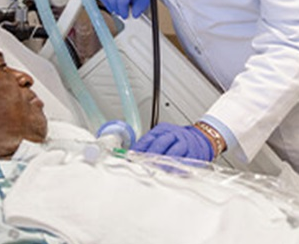What is Positive Hepatojugular Reflux? - Assessment, Procedure, Occurrence
Researchers have found that positive hepatojugular reflux is linked to a number of heart conditions. Some studies demonstrated that hepatojugular reflux correlates most strongly with left-sided heart failure, while others suggest a stronger correlation with right-sided cardiovascular events.
Positive hepatojugular reflux has been shown to have a consistently substantial correlation with right atrial pressure, pulmonary capillary wedge pressure, and pulmonary artery systolic and diastolic pressure, implying that it may be an indicator of both left and right-side increased filling pressure.
The abdominojugular reflux sign is helpful in making a diagnosis of right ventricular failure; however, it is frequently performed erroneously and inaccurately interpreted.
What is Positive Hepatojugular Reflux?
It is preferable to carry out the hepatojugular reflux test on individuals who have a suspicion of having congestive heart failure, regardless of whether or not they have raised resting venous pressure (abdominal jugular reflux).
When abdominal compression causes a quick rise in jugular venous pressure of 4 cm or more that persists for more than 10 seconds, this is considered positive hepatojugular reflux. Congestive heart failure caused by dilated cardiomyopathy is the most common cause of positive hepatojugular reflux in adult patients.

In the presence of a dilated left ventricle, a sustained rise of right ventricular and right atrial pressure in these individuals likely reflects diminished right ventricular and right atrial compliance due to the restricting action of the pericardium.
However, it should be emphasized that patients with isolated right heart failure brought on by precapillary pulmonary hypertension or right ventricular infarction might also exhibit positive hepatojugular reflux.
Procedure
This test is conducted when the possibility of right ventricular or biventricular heart failure is present. The patient is positioned in such a way that it is possible to monitor the jugular venous pulse in the lower region of the neck. For 30 to 60 seconds, exert firm pressure on the right upper region of the abdomen while keeping an eye on the jugular venous pulse. Positive hepatojugular reflux is indicated by a rise of 1 cm or more in jugular venous pressure. This positive test result assists in validating the identification of heart failure.
Assessment
The abdominojugular reflux is not particular to any one condition but rather is a sign that the right ventricle is unable to handle an increased venous return. Common reasons for a positive result include restrictive cardiomyopathy, constrictive pericarditis, and right ventricular infarction. The sign can also be caused by left ventricular failure, but only if the pulmonary capillary wedge pressure is higher than 15. The only diagnosis that is not associated with abdominal-jugular reflux is cardiac tamponade.
Occurrence
Hepatojugular reflux is a type of venous reflux that can occur in patients with congestive heart failure and is typically seen as an indication of right-sided heart failure. It happens when the diastolic pressure in the right atrium is too high, which makes blood flow back into the jugular veins. One million hospitalizations are thought to occur in the United States each year due to hepatojugular reflux, which affects up to 37.7 million individuals annually. In roughly ninety percent of patients who have congestive heart failure, aberrant findings towards the hepatojugular reflux test are found.
 Reviewed by Simon Albert
on
January 15, 2023
Rating:
Reviewed by Simon Albert
on
January 15, 2023
Rating:











